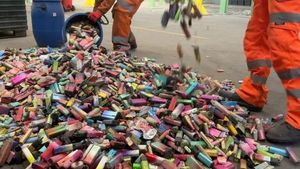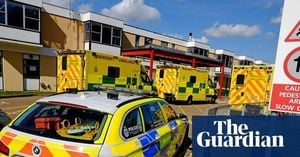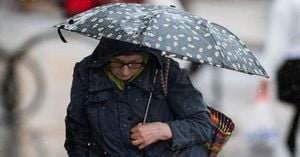The U.S. National Highway Traffic Safety Administration (NHTSA) has raised serious concerns about Tesla’s marketing tactics surrounding its Full Self-Driving (FSD) system. The agency has flagged discrepancies between public statements made by Tesla and the instructions provided to vehicle owners. It found significant gaps between how the automaker promotes its technology and what drivers are actually advised to do when using this system.
The NHTSA's scrutiny has intensified following multiple incidents where Tesla vehicles equipped with the Full Self-Driving system were involved in crashes under challenging weather conditions. This includes cases where the cars encountered situations with sun glare, fog, and airborne dust, leading to accidents. Tragically, one of these resulted in the death of a pedestrian.
Critics of Tesla, including U.S. Transportation Secretary Pete Buttigieg, have not held back, expressing their belief the nomenclature used—like 'Full Self-Driving' and 'Autopilot'—misleads consumers to think their cars can operate autonomously when, in fact, they require human oversight at all times. They argue these terms create the impression among some users, particularly new drivers, of total automation which the system does not provide.
Tesla CEO Elon Musk has been vocal about his ambitions for the company's technology, claiming the autonomous Models Y and 3 would hit the roads without human drivers as early as next year. Musk also dreams of offering robotaxis without traditional driving controls by 2026. Such claims, combined with the exuberant marketing of FSD, have fueled the NHTSA's concerns.
The agency's investigation began after Tesla received reports of crashes involving its FSD system, prompting them to ask the company to clarify its communications. A letter sent from NHTSA’s Office of Defects Investigation cited specific tweets from Tesla’s account where users appeared disengaged from driving, presenting shocking evidence the company might be promoting its system incorrectly.
Gregory Magno, who oversees investigations at NHTSA, wrote about several posts where drivers displayed inattentiveness, stating, “Tesla's postings conflict with its stated messaging.” He flagged examples like testimonials where drivers had relied on FSD technology during medical emergencies, raising alarms about the risk of misuse.
One notable incident highlighted by NHTSA involved a user who reported using the FSD system to rush to the hospital during a mild heart attack. Another showcased how Tesla marketing suggested benefits of using the system “while fatigued,” prompting immediate concern about user safety and the potential normalization of dangerous driving behavior.
The NHTSA has requested Tesla review and adjust its public communications to provide consistent and clear messaging aligned with the limitations of its FSD technology. The agency noted, “While Tesla has the discretion to communicate with the public as it sees fit, these posts show lost opportunities to temper enthusiasm for a new product with cautions on its proper use.”
After several notable crashes, including the fatalities associated with the FSD operation, the NHTSA is now setting expectations for Tesla's response. The agency has placed the onus on the automaker to clarify exactly what FSD can do, especially under reduced visibility conditions—an issue raised by car owners who may not fully understand the limits of the system.
At the heart of the investigation is not only the safety of the driving public but also the trust customers place in Tesla’s marketing. For some customers, the perception created by Tesla's promotional material leads them to believe their vehicles could operate independently, giving rise to potential traffic violations and increased accident risk.
Further complicity may arise if Musk’s anticipated influence within federal regulations manifests, especially with the new presidential administration potentially reshaping auto industry frameworks. Advocates for safer driving regulations fear this could skew oversight processes crippling the autonomy checks on Tesla and similar manufacturers.
The NHTSA has made it clear they are focused on gathering evidence and determining whether Tesla’s marketing played any role leading to crashes. They have set December 18 as the deadline for Tesla to respond to their inquiries. Failure to adequately respond to the NHTSA could expose Tesla to penalties potentially up to $135.8 million, drawing intense scrutiny to their operational safety protocols.
This brewing scrutiny and regulatory body involvement mark another chapter for Tesla and its cutting-edge but often controversial innovations. Tesla did not respond immediately to requests for comment related to this latest investigation.
With public interest and scrutiny steadily increasing, both the fate of Tesla's ambitious autonomous vehicle aspirations and their marketing strategies hang precariously within the balance of regulatory oversight and public opinion.



